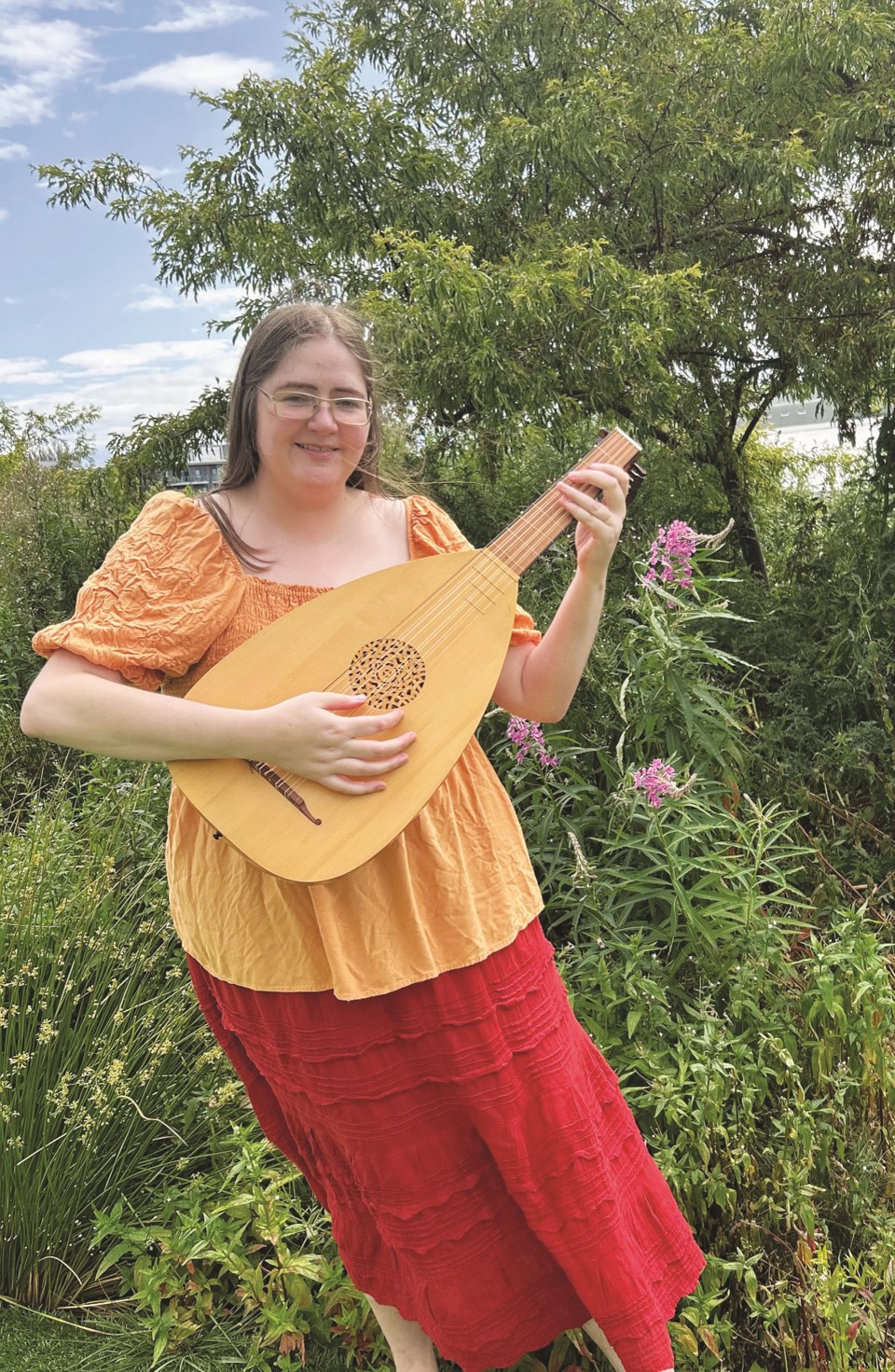An all-volunteer production of Shakespeare’s most musical comedy will be serenaded by instrumentalists and singers performing authentic Renaissance-era melodies.
Six upcoming Sechelt performances of Twelfth Night — a play that made its debut in central London more than four centuries ago — follow last year’s launch of the Coast Shakespeare initiative by the non-profit Driftwood Players theatre company.
In 2024, ticket proceeds from the group’s rendition of A Midsummer Night’s Dream raised more than $11,500 for the Bev Shaw Literacy Fund. The fund is administered by the Sunshine Coast Foundation, and supports literacy initiatives on the Sunshine Coast while commemorating the founder of Sechelt’s Talewind Books.
The run of Twelfth Night will also conclude by contributing the whole of its admission-by-donation intake to the Bev Shaw fund.
For Twelfth Night director and musical impresario Lise Kreps, bringing the show to life has been on her bucket list for most of her life. “The music came first,” she recalled. “When I was 11, I started playing the recorder and somebody gave me a book of Elizabethan and Shakespearean music for recorder. We’re actually using a couple of the arrangements from it in our production.”
Kreps has been involved with Renaissance music for over five decades — as a singer, chorister, and player of the flute, recorder and viola de gamba (a fretted string instrument invented during Shakespeare’s lifetime).
After auditioning the 17-member cast in February, Kreps recruited an orchestra and vocal ensemble from among Renaissance enthusiasts on the Sunshine Coast and beyond. Music plays a vital role in the play, which relies on earworm-style references to pop hits of 1602.
“Shakespeare does this really brilliant thing, which is to drop the names of tunes in the dialogue of the actors,” Kreps said, “without having to bring out the whole band. But because our audiences don’t know the tunes, I actually have [performers] sing a little bit more of the words to them.”
In one of the play’s central incidents, a trio of mischief-makers (Maria, Toby Belch and Andrew Agueucheek, played by Angela Cruikshank, Derry Oshust, and Larry Musser respectively) convince the punctilious butler Malvolio (Ean Henninger, formerly Midsummer’s comic Bottom) to woo his mistress by wearing yellow stockings. The scheme’s origins may stem from the contemporary song Peg-o-Ramsey: its chorus includes the lyrics “Give me my yellow hose again / give me my yellow hose.”
Reviving authentic Elizabethan melodies and lyrics was a priority for Kreps, who observed that modern Shakespeare productions tend to use bespoke or pre-recorded tunes due to the high cost of live musicians. It’s no coincidence that songs permeate the play’s storyline: the 16th-century invention of music printing meant that middle-class theatre fans regularly played music at home for after-dinner entertainment.
Where original tunes for Shakespeare’s songs are lost to history, Kreps substituted numbers from the same era. The lyrics Come Away Death are sung by the jester Feste (played by Elisabeth Lyle) to the melody of Fortune My Foe — a song that was commonly sung at public hangings.
The eight-member orchestra will include a range of viols and flutes — and uncommon instruments like the nyckelharpa (which has a keyboard and is played with a bow), the keyed lyre (whose strings are plucked like a harpsichord), and the keyless flute. Singers sourced from local ensembles, including the Ren Friends and the Suncoast Phoenix Community Choir, will vary by performance, supporting onstage performances. (“The cast sings quite well,” added Kreps. “We’re excited about that, and even the audience sings at the very end.”)
Tara Blasco will make her Coast Shakespeare debut in the role of Viola, a young woman who is shipwrecked and separated from her twin brother Sebastian (played by Midsummer alumnus Peter Gray; his castmate Melissah Charboneau portrays the countess Olivia).
Viola’s decision to masquerade as a male nobleman is echoed in the production’s gender-agnostic casting: Mary Beth Pongrac portrays the Duke Orsino and Ruthy Boehm depicts an assiduous sea captain.
Twelfth Night appears at the Rockwood Pavilion in Sechelt over six 7 p.m. performances on July 4, 5, 10, and 11 — and two 2 p.m. matinees on July 6 and 12. Tickets by donation are available online at coastshakespeare.ca/tickets. Disclosure: the Coast Reporter’s arts writer assists the production in a hosiery-free technical capacity.



